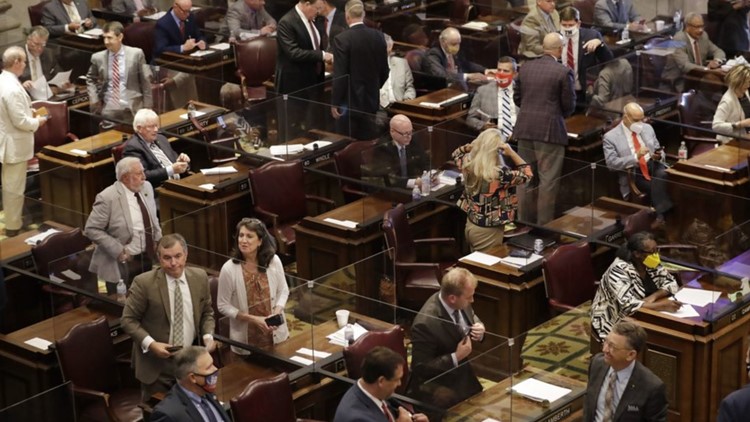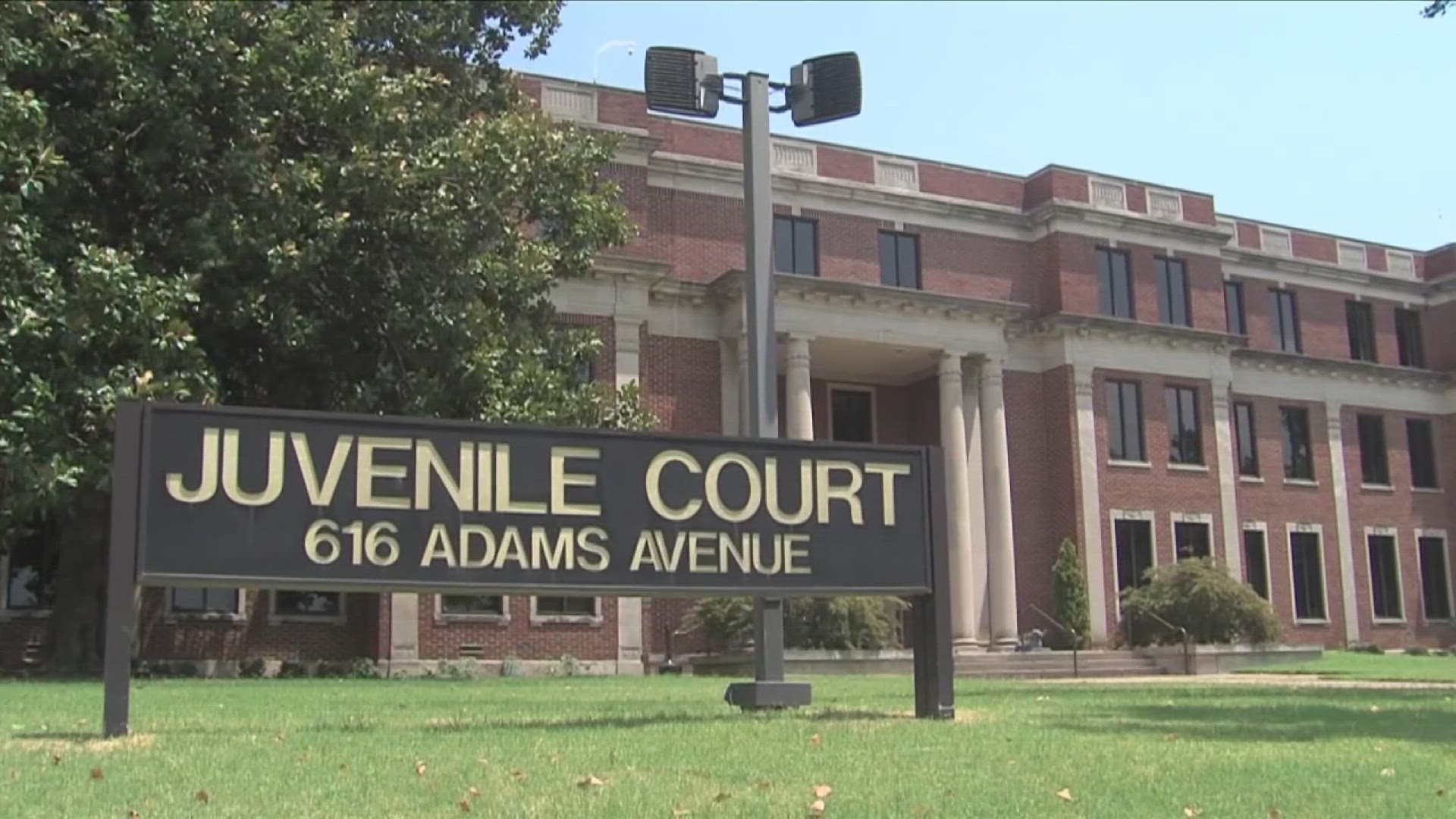NASHVILLE, Tenn. — Tennessee lawmakers finished a special session in pandemic times Wednesday by passing a sweeping proposal that would significantly stiffen penalties against protesters demanding racial justice.
In the narrow scope of the three-day election year session, no steps were taken to provide more relief to Tennessee workers who have lost their jobs due to the global pandemic. Efforts to increase law enforcement oversight were rebuffed by the GOP-dominant Statehouse.
Instead, the majority white General Assembly chose to focus their attention on the ongoing protests that have been led by mostly young Black activists outside the Capitol, who have been calling for racial justice reforms for the past two months. Republican leaders also advanced a bill awarding businesses protection from lawsuits arising from the new coronavirus.
Under the proposal targeting protests, those who illegally camp on state property would now face a Class E felony rather than a misdemeanor. Felony convictions in Tennessee result in the revocation of an individual’s right to vote.
“If you want to overthrow our government through violent revolution, you shouldn’t have the right to vote,” said state Sen. John Stevens, a Republican from Huntingdon.
The protest bill had gone through multiple iterations throughout Wednesday. The Senate had fought to soften the felony punishment for illegal camping, but ultimately caved to the House’s stricter version as the day waned on.
The protest proposal also would impose mandatory minimums for rioting, create an offense against assaulting a first responder and enhance the misdemeanor penalty for damaging state property.
Democrats countered the bill was “ridiculous” and the felony punishment for illegal camping would unfairly hurt minority and homeless communities.
“The legislation we are proposing now, years from now, I will submit to you that we will be on the wrong side of history,” said Sen. Brenda Gilmore, a Black Democrat from Goodlettsville.
Lawmakers were back at the Capitol for the second time since the outbreak sent them home early in March, and many of the Republicans still decided against wearing masks. That’s despite the 11 legislative staffers or lawmakers who have tested positive for COVID-19 since May, according to Connie Ridley, director of legislative administration.
Yet Republicans grew increasingly irritated at protesters who blocked the parking garage on multiple days.
Leaders of the protest have sought meetings with top GOP leaders, particularly Gov. Bill Lee, but have been thus far denied.
In the liability debate, Republican leaders argued their actions to protect entities ranging from businesses to school districts would provide needed assurances to boost the state’s economy — which is suffering due to COVID-19 closures.
They also maintained the legislation that levied increased penalties against protesters who broke certain laws was desperately needed, pointing to demonstrations in other parts of the country that saw “occupied” protest zones and to a May 31 protest in Nashville that turned violent and resulted in damage to the city’s courthouse.
Lee convened the special legislative session after lawmakers failed to pass COVID liability legislation before they initially adjourned in mid-June. He had signed an executive order protecting health care providers while lawmakers quibbled over their differences.
The main dividing line over the liability bill was whether to make its protections retroactive to early March, which the Senate supported and the House opposed.
The bill that ultimately passed is now retroactive to Aug. 3. This has caused alarm from some lawmakers that bill may be illegal because Tennessee’s Constitution states “no retrospective law, or law impairing the obligations of contracts, shall be made.”
“I readily admit this is a question that the courts will have to answer,” said Republican Sen. Mike Bell, who added he felt confident a court would side with the Legislature because the proposal would be in the public’s interest.
Existing lawsuits surrounding poor COVID-19 safeguards will be grandfathered into state code as long as the complaints had been filed before early August.
Earlier that day, a Senate panel spiked a proposal that would have required law enforcement to “clearly identify” themselves while making arrests. The bill had been backed by Democrats in response to the death in Kentucky of Breonna Taylor, who was fatally shot on March 13 by Louisville police officers serving a “no knock” narcotics search warrant at her apartment.



